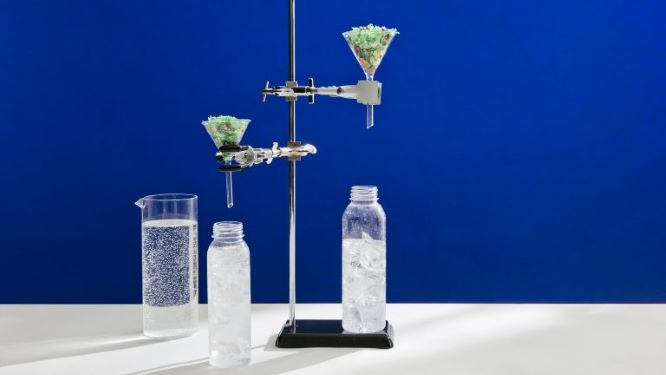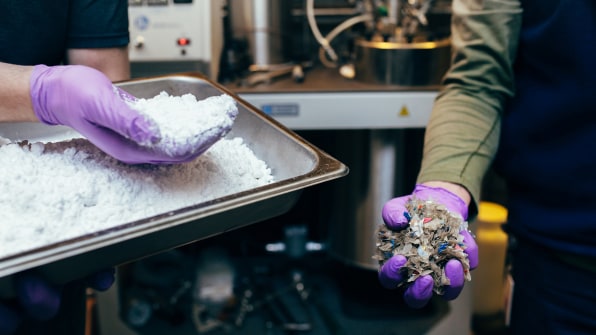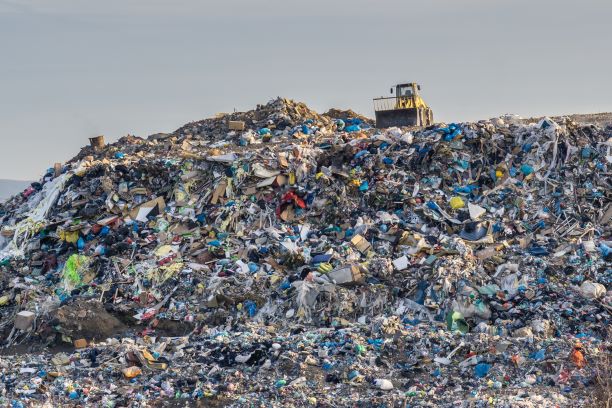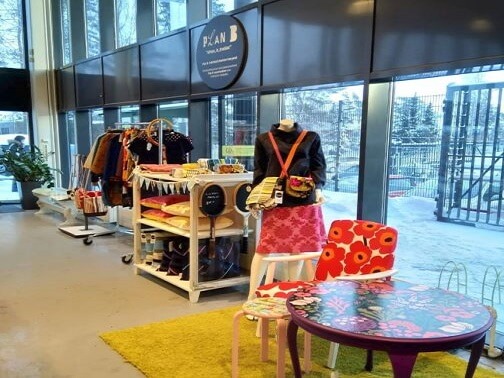IBM Steps Up Plastic Recycling with New VolCat Technology

With the world grappling with plastic pollution from every nook and corner, many big companies like HP, Lenovo and Adidas have stepping up their efforts against our plastic problem. Now another tech giant IBM has come with an innovative way to make recycling more accessible and sustainable.
Silicon Valley-based IBM developers recently invented a pressure reactor that uses a new recycling method, called VolCat short for Volatile Catalyst. The device has the ability to break down fabric made of a cotton and polyester blend. The machine will separate the two materials, spinning the natural cotton fibers into a ball, and breaking down the polyester into a powder. The machine also recycles dirty hard plastics (from bottles to containers), by breaking the items down into powder that can be used to make new plastic products.
The technology is one among the five steps it plans to take in 5 years to provide solutions at every stage. The five innovations are:
- Digital Twin: Farming’s digital doubles will help feed a growing population using less resources
- Blockchain: To prevent more food from going to waste as blockchain technology, IoT devices, and AI algorithms join forces
- Culture Club: Mapping the microbiome will protect us from bad bacteria
- Dinner plate detectives: AI sensors will detect foodborne pathogens at home, and lastly
- VolCat: A radical new recycling process will breathe new life into old plastic
“In five years, the disposal of trash and the creation of new plastics will be completely transformed. Everything from milk cartons to cookie containers to grocery bags and cheese cloths will be recyclable, and polyester manufacturing companies will be able to take in refuse and turn it into something useful,” IBM says. “This transition will be powered by innovations like VolCat, a catalytic chemical process that digests certain plastics (called polyesters) into a substance that can be fed directly back into plastic manufacturing machines in order to make new products.”

The company is currently talking to partners about running a larger pilot test, to see if the approach is economical at scale. But the researchers seesk to plug into plastic production plants–which would start getting shipments of recycling sent directly to them. As it can use the dirtiest, lowest-value post-consumer materials, and as the catalyst can be fully recycled, it can keep costs low. It also uses relatively little energy. Right now, the plastic industry uses virgin petroleum-based feedstocks in almost all production, accounting for around 6% of global oil use. That’s around the same amount used by the aviation industry, and a major source of emissions.
As the use of plastic grows, a 2018 report from the International Energy Agency predicts that emissions from petrochemicals will rise as much as 30% by the middle of the century. But technologies like IBM’s could reverse that trajectory, as long as recycling infrastructure grows and consumers start sending more old packaging to recycling centers instead of landfills or the ocean.
If VolCat takes off and becomes more widespread in the future, it could greatly reduce the demand for virgin plastic. By relying more on a process like VolCat, less fossil fuels will need to be used to create plastic products, and reuse plastics which are already manufactured.
To know more about IBM 5in5 research click here.
Picture credit: IBM








